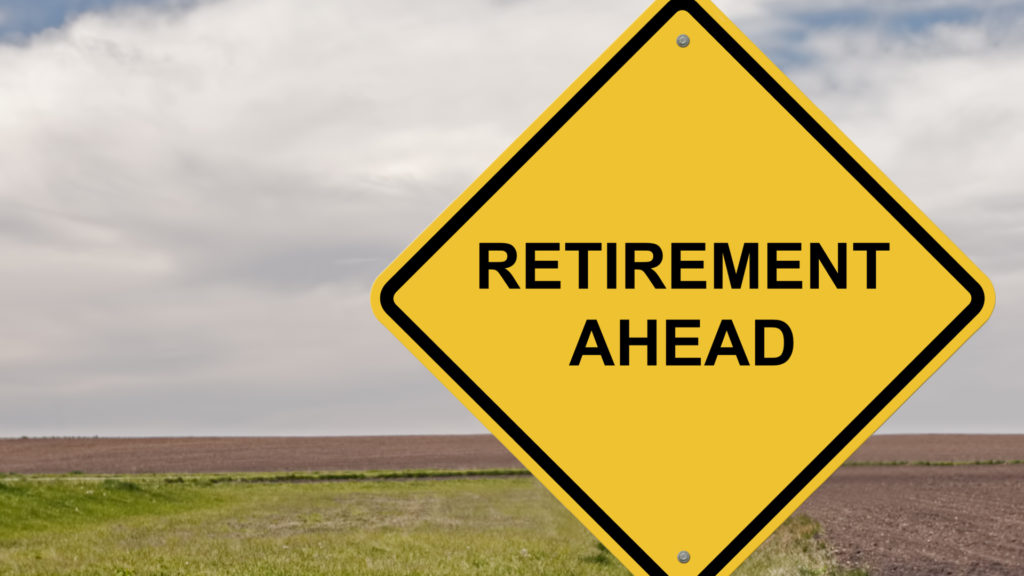The sting of the coronavirus pandemic is being felt far and wide. Even if you’re fortunate enough to have sidestepped illness, COVID-19 has likely made its mark on your retirement portfolio and, possibly, your income. Both outcomes signal it’s time to reassess where you stand with respect to retirement planning.
If you’re retiring within five years
Between January 1 and March 23 of 2020, the S&P 500 index declined some 30%. Much of those losses have reversed in the weeks since then, but there’s no telling what the future might hold. A resurgence of COVID-19 that forces renewed shelter-in-place orders would likely cause another rash of market turbulence. And that could be devastating to your portfolio.
Review your asset allocation
You can proactively hedge against future market volatility by adjusting your portfolio’s asset allocation. Asset allocation is the composition of your investments across various asset classes — stocks, bonds, and cash, for example. Stocks typically deliver growth, but that comes with volatility. Bonds provide fixed income along with more limited growth opportunities. You can mix the two to tailor the risk level within your portfolio. For example:
- An aggressive portfolio might include 80% stocks, 10% bonds, and 10% cash.
- A conservative portfolio would have a larger percentage of bonds, such as 70% bonds, 20% stocks, and 10% cash.
If your targeted retirement date is within five years, most experts recommend you limit your stock holdings to 50%. At that level, you can participate in market growth, but you’ll be protected from the wildest of market swings. You can refine your approach further by revisiting how stressed out you were when the market was freefalling in March. If you lost sleep worrying about your portfolio balance, that’s a sign you’ve invested too aggressively.
The good news is that the markets have regained some ground, you should be able to make allocation adjustments without realizing double-digit losses. To de-risk your portfolio quickly, for example, sell off stocks and stock funds, and use the proceeds to buy more bonds and bond funds.
Stretch your savings
Once you’re comfortable with the risk level in your portfolio, turn your attention to that shrunken balance. Since retirement is right around the corner, you can’t simply wait for your investments to recover from the coronavirus-fueled volatility. You either have to make tough choices now, or deal with lower income from savings for the rest of your life. Here are three strategies you can take now to extend the longevity of that nest egg.
1. Keep working and delay Social Security
If your job is still intact, consider delaying your retirement temporarily. This strategy benefits you three ways:
- The longer you keep your job, the more financial flexibility you have. Ideally, your portfolio will recover quickly, and you can leave the workforce without a second thought. But if market volatility continues, working longer supports your long-term solvency by shortening the time you’ll be living off that retirement account.
- As long as you keep working, you can keep making retirement contributions. That’ll help restore your account balance to its former glory and give you a larger base to benefit from recovery gains.
- Delaying your retirement increases your Social Security benefit. The more you earn from Social Security, the less you have to pull from your savings. You can claim Social Security any time between the ages of 62 and 70. The longer you wait, the higher your monthly benefit.
Also, your Social Security benefit is calculated from your average income in your highest-paid 35 years of working. If your current income is higher than your average, continuing to work will naturally increase your benefit. You can check your earnings history and your benefit estimates by creating an account and logging into my Social Security.
2. Downsize now
Your current retirement plan might involve downsizing after you leave the workforce but starting that process now will ease pressure on your finances immediately. Downsizing your home makes the largest impact; ideally, you could eliminate a mortgage payment and have enough left to buy a comfortable replacement property. You could also downsize cars, shop around for cheaper insurance, and generally streamline your living expenses. Every $1 you cut back is another $1 you can stash in your savings.
3. Increase contributions
Whether or not you delay your retirement, you should increase contributions now if you are still employed. If you’ve cut the fat out of your monthly spending, put the cash you’re saving into that retirement account. Assuming you’re over the age of 50, you can contribute up to $26,000 to your 401(k) in 2020, plus another $7,000 in a traditional IRA. If you do participate in a 401(k), know that your IRA contribution may not be tax deductible. But the contribution is still worth it, since you’ll be deferring taxes on those IRA earnings until you start taking distributions.
If you’ve lost your job
In the eight weeks between mid-March and mid-May, more than 36 million Americans filed for unemployment. Job losses related to the coronavirus drove the U.S. unemployment rate from 3.5%, a record low, to nearly 15%. That’s an unemployment level we haven’t seen in this country since 1940.
Based on those numbers, there’s a good chance you’ve either lost your job or are worried about losing your job. Job loss is particularly troubling for seniors. Yes, your paycheck goes away, along with the ability to make catch-up retirement contributions. But you’re also likely to face age discrimination when you try to get back into the workforce. You may even be forced to claim your Social Security early because you can’t find a suitable opportunity.
As a first remediation step, review your expenses and cut out everything that’s not absolutely essential. Ideally, you’d whittle your bills down enough to survive on unemployment income, along with a little help from your emergency fund. Normally, unemployment replaces about 40% of your working income — which is about the same you can expect from Social Security. If you can make ends meet on something close to that while unemployed, you might consider retiring early and living off your Social Security, plus smaller withdrawals from your savings.
In the immediate term, you will get some help from the federal coronavirus stimulus package, called the CARES Act, which has beefed up unemployment benefits. Now through July 31, 2020, your unemployment income includes an extra weekly supplement of $600. That income boost could buy you some time to wait and see how the job market evolves before you file your Social Security claim.
Keep borrowing to a minimum
Perhaps the biggest challenge you’ll face while unemployed is keeping debt to a minimum. In reality, most of us can’t survive on 40% of our working income, so we end up borrowing to cover the gap. If you must borrow, don’t reach for the credit cards. Tap into the cheapest debt sources you can. Home equity lines of credit, life insurance loans, and even personal loans should carry lower interest rates than your credit cards.
Avoid pulling cash from your retirement accounts
You could also tap into your retirement accounts to keep the bills paid. Proceed with caution here. It’s obviously counter-productive to your retirement plan, and probably ensures that you’ll have to return to work at some point. If you can’t land a good job, either because of your age or because of the job market, you’ll be in a deeper hole.
But sometimes, you have to take the last-resort option. If you have no choice but to pull from your retirement savings, you’ll have to take an early withdrawal from your IRA or 401(k); a 401(k) loan is off the table, because you’re unemployed. In 2020 only, the CARES Act waives penalties on early 401(k) and IRA withdrawals. You still have to pay income taxes on these withdrawals, but you can spread the tax bill out over the next three years. And if you repay the withdrawal within three years, you’ll get a credit for the taxes you paid.
Keep track of contributions missed or funds withdrawn
While you’re doing this cash flow dance to make ends meet, keep track of the retirement contributions you’ve missed, along with any retirement withdrawals you took. When you do return to work, increase your contributions substantially to generate some quick momentum on that retirement plan. That’s another argument for streamlining your living expenses right now: If you can keep that lean lifestyle after you re-enter the workforce, you can afford to fund larger retirement contributions.
Revaluate the plan every six months
Your retirement outlook may look bleak today. But as the recent stock market performance has shown us, things can change quickly. The economy is just beginning to re-open and progress is being made on a coronavirus vaccine. Don’t give up hope on your retirement plan just yet. Instead, focus on staying afloat, with minimal new debt, until the crisis fades.
Every six months going forward, reevaluate your approach. Adjust according to what’s working and what’s not. If you’re going to create your dream retirement in this environment, it’ll happen by way of careful planning and spending discipline. And those are skills that’ll continue to benefit you, well into the future.
*Disclaimer: Harbor Life Settlements is not a licensed investment advisor or registered representative.






